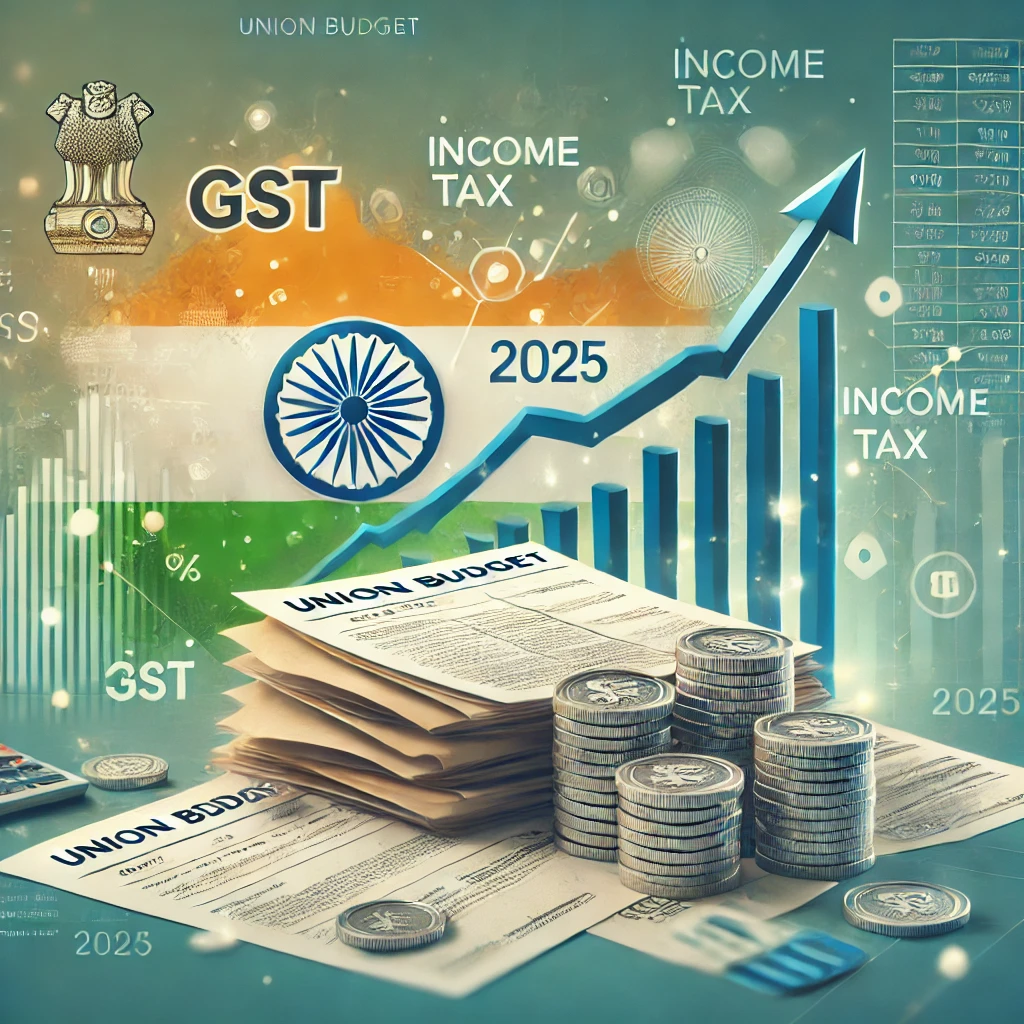The Union Budget 2025-26, unveiled by Finance Minister Nirmala Sitharaman, marks a significant milestone in India’s economic policy landscape. Aimed at stimulating growth, enhancing compliance, and providing relief to taxpayers, the budget introduces comprehensive reforms in both Goods and Services Tax (GST) and Income Tax. This article delves into the pivotal policy shifts, analyzing their implications for individuals and businesses alike.
Overhaul of Income Tax Regime
One of the most anticipated aspects of the Union Budget 2025-26 is the extensive restructuring of the income tax framework. The government has taken decisive steps to simplify the tax system, reduce the burden on taxpayers, and encourage voluntary compliance.
Revised Income Tax Slabs
The budget introduces new income tax slabs under the restructured tax regime, significantly increasing the threshold for tax exemption. Individuals with an annual income up to ₹12 lakh are now exempt from paying income tax, providing substantial relief to the middle class. This move is expected to boost disposable income, thereby stimulating consumer spending and economic growth.
The revised tax slabs are as follows:
Income Range (₹) | Tax Rate (%) |
Up to 4,00,000 | Nil |
4,00,001 to 8,00,000 | 5% |
8,00,001 to 12,00,000 | 10% |
12,00,001 to 16,00,000 | 15% |
16,00,001 to 20,00,000 | 20% |
20,00,001 to 24,00,000 | 25% |
Above 24,00,000 | 30% |
This restructuring aims to simplify the tax system and make it more equitable, ensuring that higher income groups contribute a fair share to the nation’s revenue.
Increased Standard Deduction
To further alleviate the tax burden, the standard deduction has been increased from ₹50,000 to ₹75,000. This enhancement allows taxpayers to reduce their taxable income, resulting in additional savings. The increased standard deduction is particularly beneficial for salaried individuals and pensioners, offering them greater financial flexibility.
Simplification of Tax Laws
In a landmark move, the government plans to replace the existing six-decade-old income tax law with a more straightforward version. This new legislation aims to reduce complexity, minimize ambiguities, and foster a taxpayer-friendly environment. Operating on the principle of “trust first, scrutinize later,” the revamped law is expected to encourage voluntary compliance and reduce litigation.
Goods and Services Tax (GST) Reforms
The Union Budget 2025-26 also addresses critical aspects of the GST framework, focusing on rationalization, compliance, and support for emerging sectors.
Rationalization of GST Rates
To streamline the tax structure and reduce classification disputes, the government has undertaken a rationalization of GST rates. While specific rate changes were not detailed in the budget speech, the emphasis is on minimizing exemptions and correcting inverted duty structures. This initiative aims to create a more straightforward and efficient GST system, benefiting both businesses and consumers.
Compliance Simplification
Recognizing the challenges faced by small and medium enterprises (SMEs) in adhering to GST compliance requirements, the budget proposes measures to simplify return filing and tax payment processes. The introduction of user-friendly digital platforms and the reduction of procedural complexities are expected to ease the compliance burden, enabling SMEs to focus on growth and innovation.
Support for Clean Technology
In alignment with global sustainability goals, the budget introduces the Clean Technology Manufacturing Mission. This initiative aims to promote the production and adoption of clean energy solutions by providing policy support and incentives. The GST framework will be adjusted to facilitate the growth of this sector, potentially including tax concessions and simplified compliance procedures for clean technology manufacturers.
Implications for Businesses and Individuals
The policy shifts in the Union Budget 2025-26 carry significant implications for various stakeholders:
For Individuals
- Increased Disposable Income: The revised income tax slabs and higher standard deduction translate to more take-home pay for individuals, boosting purchasing power and quality of life.
- Simplified Tax Filing: The overhaul of tax laws aims to make tax filing more straightforward, reducing the time and effort required for compliance.
For Businesses
- Eased Compliance: Simplified GST procedures and rationalized rates reduce the administrative burden, allowing businesses to allocate resources more efficiently.
- Incentives for Sustainable Practices: Support for clean technology manufacturing encourages businesses to adopt environmentally friendly practices, aligning profitability with sustainability.
- Stable Investment Climate: The government’s commitment to fiscal discipline and infrastructure development fosters a conducive environment for investment and expansion.
Conclusion
The Union Budget 2025-26 presents a forward-looking blueprint aimed at revitalizing India’s economy through comprehensive tax reforms and strategic support for key sectors. By overhauling the income tax regime and refining the GST framework, the government seeks to simplify compliance, enhance taxpayer satisfaction, and stimulate economic activity. These policy shifts not only provide immediate relief to taxpayers but also lay the foundation for sustainable growth and development in the years to come.
As these reforms take effect, it is imperative for individuals and businesses to stay informed and adapt to the evolving tax landscape to fully capitalize on the opportunities presented by the Union Budget 2025-26.
Disclaimer:The content provided in this blog post is for informational purposes only. The opinions expressed here are those of the author and do not necessarily reflect the views or opinions of Business Rahi. While we strive to ensure the accuracy and reliability of the information presented, we cannot guarantee the completeness, reliability, or suitability of the content for any particular purpose. Any reliance you place on such information is strictly at your own risk.
Buisiness Rahi is not responsible for any losses or damages arising from the use of the information shared in this blog post. We may feature links to external websites, but these do not constitute endorsements or recommendations. We encourage readers to conduct their own research and consult with professionals before making any business decisions.
For more information about our brand or policies, please refer to our official website or contact us directly.

